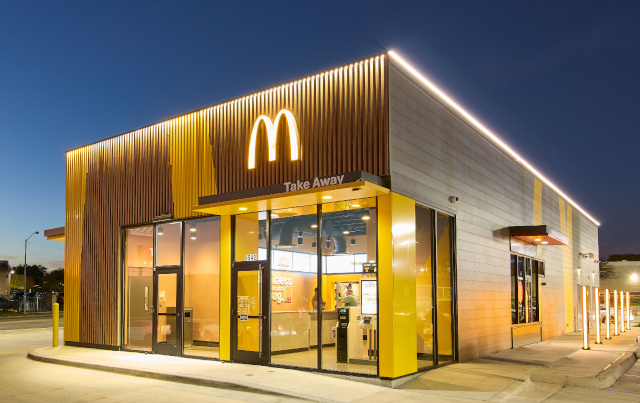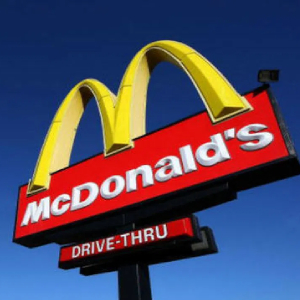A new French law mandates the use of reusable utensils and service ware in fast food joints comes into effect tomorrow. Environmental groups are happy. Resto operators are livid…
 The prototype McDonald’s Resto of the Future, Austin , Texas.
The prototype McDonald’s Resto of the Future, Austin , Texas.
What the law says
According to The Guardian: “Under the new rules, any restaurant with more than 20 seats – including work canteens, bakery chains, fast-food and sushi outlets – will have to provide reusable, washable cups, plates, dishes and cutlery for customers eating in.” What goes unsaid there is, the law applies only to customers eating in, not to take-out diners – by far, the majority.
The new law is being called a revolution by environmentalists. It is, after all, intended first and foremost to combat waste from single-use resto packaging and utensils.
“We’re extremely happy that this is finally coming into force,” Alice Elfassi, head of legal affairs for the NGO Zero Waste France (ZWF), told reporters. “Fast food is a sector that produces a lot of waste. Although single-use plastic had already been banned, it had been replaced by large amounts of throwaway products like cardboard, wood, bamboo, which we consider an unacceptable waste of resources.”
The drawbacks
However, I can immediately think of at least half a dozen reasons why this requirement will be driving restaurant operators bonkers.
- The fundamental problem is, the fast food sector is built on a business model that relies on the use of disposable packaging and utensils. It’s been that way from the very beginning. Only single-use plastic products have already been banned. But they’ve been replaced largely by products such as moulded fibre, wood and bamboo which can be recycled but not washed and reused.
- New hardware for serving eat-in diners will (ZWF fears) be produced in durable, reusable, washable heat sanitizable hard plastic. The the technology and materials already exist. But someone will have to take responsibility for sorting out cracked, broken chipped or otherwise compromised pieces.
- One of the biggest issue I see is, the cost of new commercial dish washing stations where none were required before. Add the cost of consumable supplies for them, oceans of hot water, and staff to load and unload the machines. Not to mention finding space in already-cramped, crowded fast food kitchens to put them.
- Service may be slowed or backed up as kitchen staff wait for dish washer cycles to complete themselves.
- Resto operators also worry that extra staff will have to be brought on to stop customers throwing new, reusable table ware away, or taking it home.
- Some young customers said they worried reusable cups wouldn’t be clean and preferred to get takeaway.
That’s just a sampling of the negatives I see on the horizon.
The FF resto of the future
On the other hand…
New business models now being tested by the major Fast Food players seek to minimize eat-in seating, minimize floor staffing, and emphasize drive-thru, pick-up and delivery traffic via digital ordering and payment systems. Small dish washing stations to service small eat-in sections present much less onerous challenges.
Traditional resto dishes (cups, saucers, etc.) and utensils made of durable plastic have proven long-lived under the heavy use and rough handling they get. Economically, they’re a good thing.
The roughly 30,000 fast-food outlets in France serve 6 billion meals a year, generating an estimated 180,000 tonnes of waste. Environmental groups said 55 per of that was generated by people eating in. But, as we said earlier in this post, only a small part of that waste burden will be eliminated by the new law (governing only dine-in meals) as the new FF business models are implemented.
The jury remains out…
We’ll have to watch and wait to see how much – and what sort of – an impact the new law has on French fast food purveyors and consumers.
~ Maggie J.

